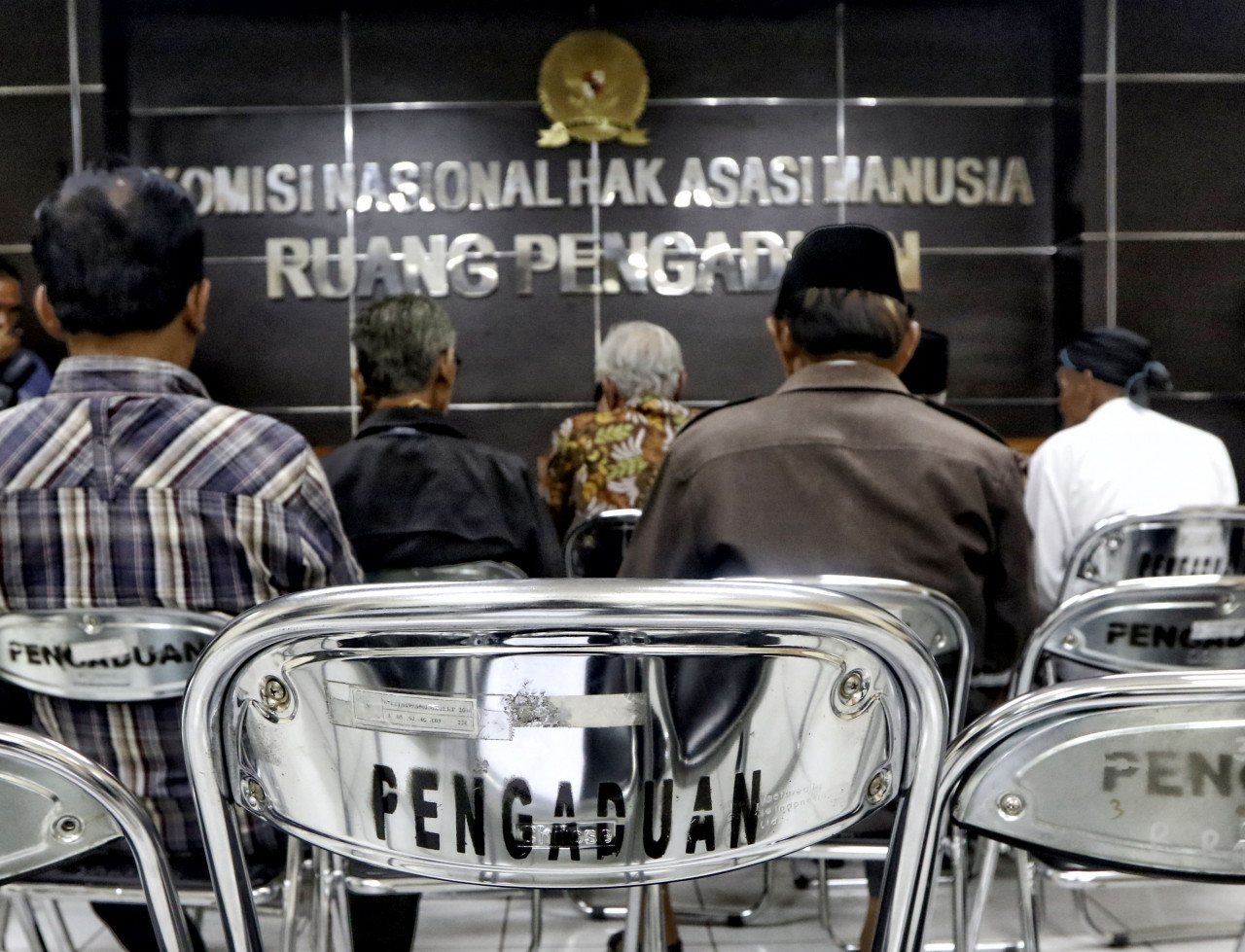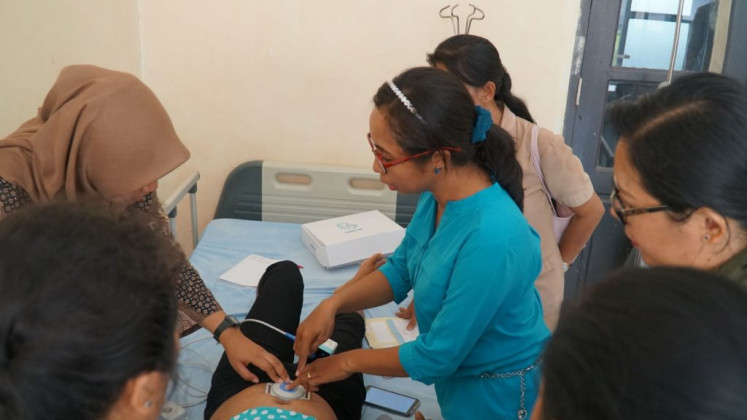Popular Reads
Top Results
Can't find what you're looking for?
View all search resultsPopular Reads
Top Results
Can't find what you're looking for?
View all search resultsTruth in the time of corona: International day on right to truth, dignity of victims
March 24 is the International Day for the Right to Truth and Dignity of Victims —a day to remember the truth about mass human rights violations- -- who were the victims, what were their root causes, how did the violations become so massive and how did we as a society deal with them.
Change text size
Gift Premium Articles
to Anyone
I
n recent weeks, we have been captured by the singular narrative of our survival against COVID-19. It is a time of introspection, a time to look at difficult facts and examine lessons from the past. International Day for the Right to Truth and Dignity of Victims falls on March 24 —a day to remember the truth about mass human rights violations- -- who were the victims, what were their root causes, how did the violations become so massive and how did we as a society deal with them.
It is also an opportunity to reflect on how those lessons from the past can assist us in dealing with the major challenges we face today. You cannot solve a problem or try to heal without courageously facing the objective truth. The distortion of facts can only serve to make the problem worse in the long run.
Our experience of mass violations in Asia have shown the link between health and human rights: how situations of mass violations highlight dire social, economic and health impacts. Examples include the great famines in China (1948), Timor Leste (1978-1979), the hundreds of deaths from malaria among the political prisoners imprisoned on Buru Island (1968-1978) and the death by starvation and disease in the killing fields of Cambodia (1975-1979.) They also include, the continuing threat of disease among refugees and the internally displaced living in camps in Nduga in Papua, to the 1 million Rohingya refugees from Rakhine in Cox’s Bazaar, Bangladesh.
Amartya Sen, Nobel laureate for Economic Science (1998), has written about how the lack of democracy – indicated by poor policy-making and enforcement -- can be an enabling factor to famine, such as those referred to above.
In 2010, the United Nations General Assembly decided that March 24 was a day to commemorate the right to truth and the dignity of victims of gross human rights violations. The day marks the 1980 assassination of Archbishop Oscar Romero of San Salvador, a defender of the poor who dared to speak out against the death squads linked to the military junta at the time.
Today is also an important day for Indonesia, as we contemplate our unaccounted past. More than two decades into our reformasi, we still do not know how many people perished during the killings of 1965-1966, and how many more died due to disease and starvation in the camps and prisons across Indonesia.
There is no official reckoning about how we as a society allowed these mass killings to take place. What were the policies and omissions that were allowed to form, so that mass incarceration and killings could take place with impunity?
During the 34 years of Soeharto’s rule, school children were made to watch a film that depicted a particular version of those events. I remember, as a sixth grader, going on a school trip to various museums and sites to witness this well-rehearsed untruth. Scholars were not allowed to research these events and books were banned. Unfortunately, this was not the only bloody chapter.
From the farthest corners of the country, from Papua to Aceh, violence was used as a tool to suppress any dissent, and cover up crimes, theft and mass violations. Our history is filled with unspoken heroes, people who stood up for their conscience and were brutally silenced.
After the fall of Soeharto in 1998, some victims began to speak about what happened to them. But the official response has been a deafening silence. With the retracting of the truth commission law, there has been no official policy to deal with this difficult truth. Indonesia passed a law to establish a truth commission in 2004, but the law was annulled two years later –without being implemented.
In the meantime, a local truth commission in Aceh, established under the Helsinki Peace Agreement, has collected more than 3,000 statements, and conducted public hearings for hundreds of survivors. In Papua, under another special autonomy law, the promise for a truth commission has lingered and largely been abandoned.
Last week, the Attorney General returned to the National Human Rights Commission the dossier on the 2014 Paniai killings. The old adage that history will be repeated rings true in this situation.
President Joko “Jokowi” Widodo has his hands full with the present pandemic. In these times of uncertainty, we must pay special attention to the most vulnerable—among them the thousands of elderly survivors of human rights violations. We must remember that during those dark times the state neglected its primary duty to protect them. Many of the victims live in extreme poverty and still experience the impact of social stigmatization.
International law provides that states have a legal duty to try to repair the damage done to those innocent victims; we need to remember and fulfill that duty. Of course, we need to think of new ways to collect and archive stories from our past, with the use of new online technology combined with time-tested grassroots approaches.
We need to reach out to those who have been marginalized. This is also necessary for social and moral healing, to build a more just, moral and compassionate society.
Today our lives and work are filled with new, urgent priorities. However, it is important that on the international day of the right to truth we remember that the truth needs to be uncovered, shared, discussed and used as a base of good policy decisions. This has always been true and is true today as we struggle to protect the most vulnerable in a rapidly changing context.
The distortion of the truth inevitably leads to a failure to protect those in need. Our time is short. There are lessons from our past that hold the key to our common survival.
***
Director of Asia Justice and Rights (AJAR). She is also an adviser to the Aceh Truth and Reconciliation Commission.










